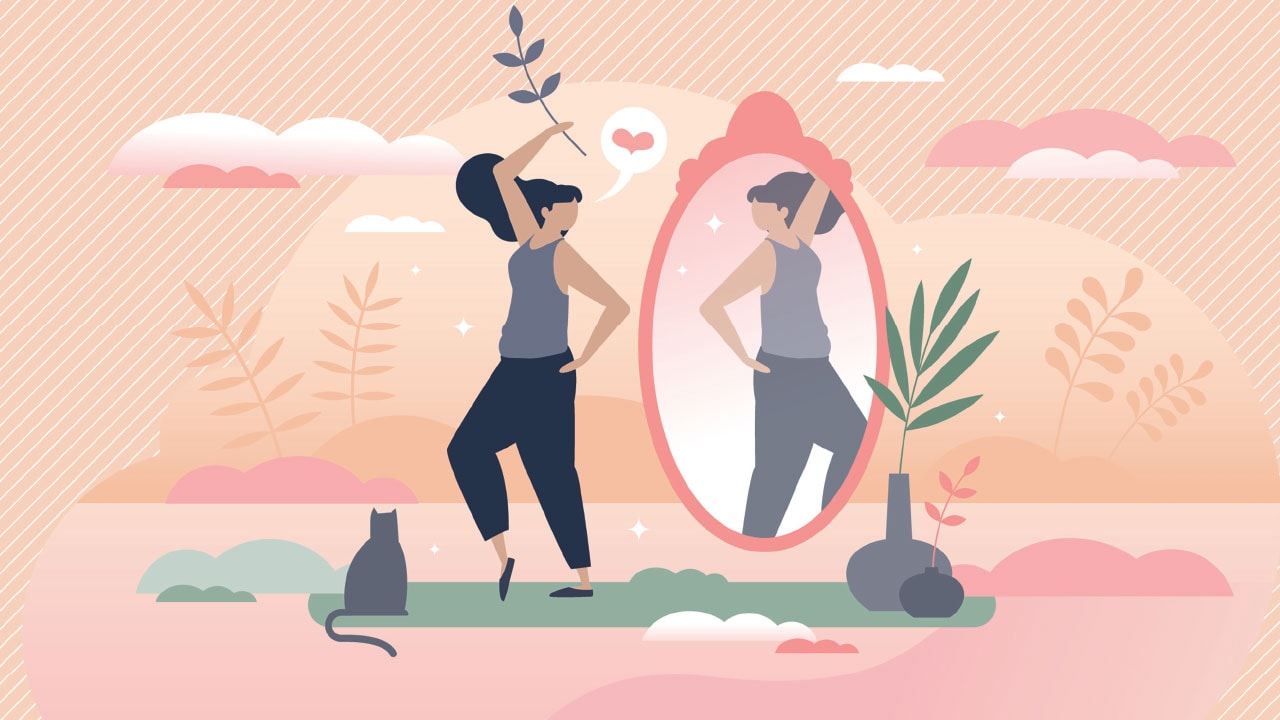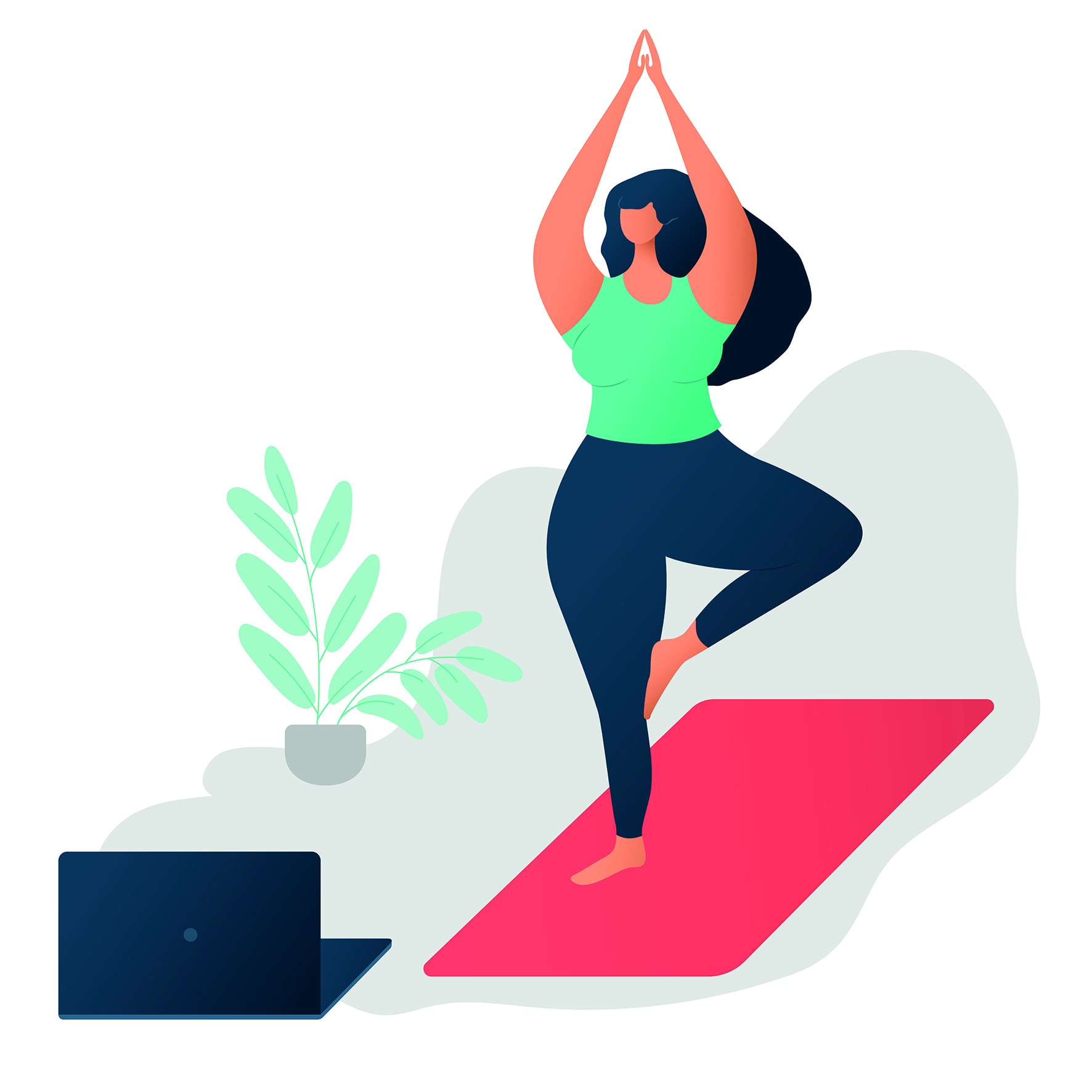
Be a rebel and love yourself
8 ways to create a self-compassionate, loving relationship with yourself and why it is important. By Tess Jewell-Larsen
In our society, we are taught from a very young age to be critical of every part of our being. We are taught we should look a certain way. We are taught we should think a certain way. We are taught that if we do not achieve certain standards then we are not successful.
Loving yourself often feels frowned upon. A 2014 survey by Action for Happiness, in collaboration with Do Something Different, found that on average most people ranked themselves 5.56/10 for being happy in themselves just as they are.
Self-compassion, self-love, is the act of looking at ourselves in the moment, understanding that there are imperfections and loving yourself anyway. You give yourself the love and support you need to take the steps to grow and develop in a compassionate environment. When we do this, studies have shown that we decrease levels of stress, anxiety, depression and self-avoidance. Self compassion does not make you soft, it actually makes you stronger.
We are no strangers to anxiety and depression in our world, with an estimated 4.4% of the global population suffering from a depressive disorder and 3.6% suffering from an anxiety disorder. The Australian Statistics Bureau estimated that 13% have an anxiety-related condition and 10% have depression or depressive feelings. Loving yourself, with all your imperfections, should be your number one priority.
A 2015 study corroborated that when we self-judge, isolate and over-identify with ourselves, this increases the risk of depression. However, when individuals introduced self-compassion into their lives, the self-coldness reduced and levels of depression decreased.
By creating that self-compassionate environment for ourselves, we can make ourselves stronger, mentally and physically. How do we cultivate self-love and self-compassion?
1.Listen and communicate with yourself compassionate
Continuously check-in with yourself: How are you breathing? How are you feeling, emotionally and physically? Allow yourself to acknowledge whatever comes up to come up without judgement. Listen to what your needs are. Talk to yourself compassionately.
2.Practice mindful breathing
Take time to check in with how you are breathing. Our breath can tell us a lot about our current emotional state. When you notice your breath is tight, shallow and quick, pay attention. Use techniques to release the tightness and make the breath easy. Techniques like stair step breath, box breathing, 4x8 breathing, and alternate-nostril breathing can be very beneficial.
3.Practice mindful movement
Take time every day to include mindful movement into your routine. Even two minutes of mindful movement like yoga can make a difference. However, be sure to make the movement suit your needs at the time: this could mean changing pace, varying movement, doing less, or doing more. Be mindful of how you move and how that movement supports or hinders you in that moment. Listen to what your body tells you.
4.Meditate
Meditation is a powerful tool to help us connect with ourselves, be in the present moment and to learn to give ourselves grace. The practice of meditation, learning to realise when we drift away with our thoughts and to pull ourselves back, without judgement. Meditation does not have to be done for long periods of time to be effective, but consistent meditation can literally change the way our brain is wired.
5.Make room for healthy habits
At first, it can be tricky to change our habits. It takes time, and it is certainly not a linear progression, but the more we make space for those habits, the more we practice, the easier it becomes. Imagine your habits like a grassy field. Your current habits are a well-trodden path that you have made through the tall grass. When you start to create a new path, with new habits, it takes you time to make your way through and occasionally you may get smacked in the face by the tall strands. Little by little, however, the more you use that path, the easier it gets to make your way through. And your old path, the one that led to unhealthier habits? It starts to grow over and eventually be forgotten.
6. Do something you love for yourself
When we do things we love this strengthens our connection with ourself and it increases our confidence. Doing things we love and we are good at makes us feel happier and less stressed, and it boosts our energy levels which, in turn, boosts our relationship with ourselves and our connection with others.

7.Celebrate your wins and forgive your mistakes
It’s important to celebrate our wins. We often get so caught up in focusing on the negative aspects that we forget to appreciate the things we are good at, the things we do well. It is said that Albert Einstein did an exercise with a class where he wrote down the multiples of nine on the board. He wrote down all the correct answers from one to nine, but on the tenth he wrote down the incorrect answer. The class snickered, laughing at his mistake.
He took this moment to point out that despite the fact that whilst he had analysed nine equations properly, the only time anyone ever said anything was when he did something incorrectly. In response he said: “Don’t let criticism destroy your dreams. The only person who never makes a mistake is someone who does nothing.” Forgive your mistakes. Celebrate your wins. And celebrate the fact that you are not doing nothing!
8.Pace yourself and give yourself grace
Pacing is essential to self-compassion. It’s the act of listening to yourself, acting when you can, taking breaks and resting when your body
asks for it, and getting support when you need it. It’s about giving yourself grace when times are difficult, whether it is because you are physically or mentally injured, you are ill, things in life are stressful, or all of the above.
Rebel against the voices of society. Rebel against what is 'common’. Rebel against stigma. Be a rebel. Love yourself for who you are and cherish what you find.
Tess Jewell-Larsen is a yoga and wellness coach, plant lover, wife, and mother of an adorable cat, Pippin! Find her on Instagram @tytoniyoga or on her website: tytoniyoga.com




